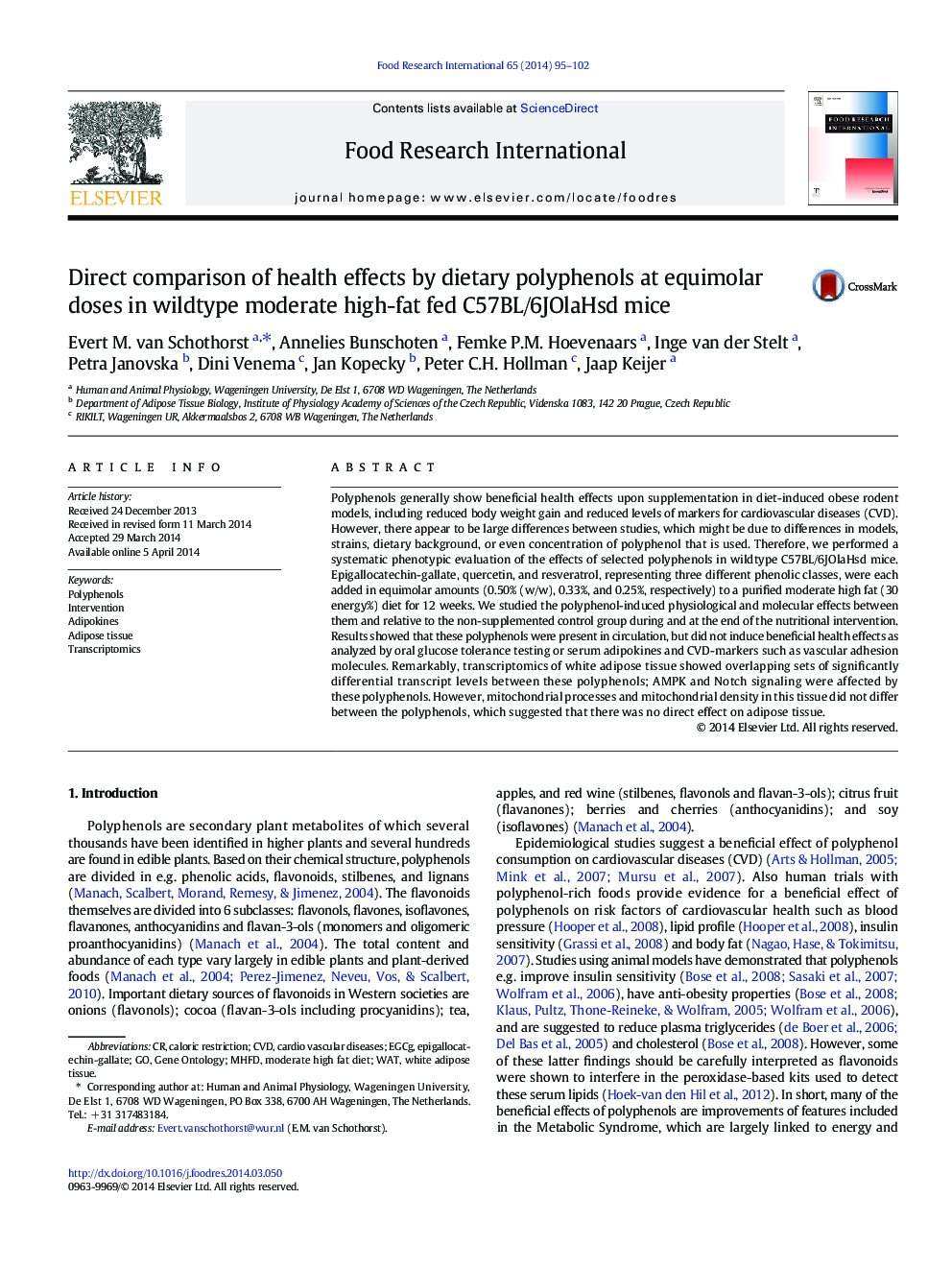| Article ID | Journal | Published Year | Pages | File Type |
|---|---|---|---|---|
| 4561649 | Food Research International | 2014 | 8 Pages |
•Dietary EGCg, quercetin, and resveratrol are circulating at μM scale in mice.•No effects were seen on glucose tolerance nor serum adipokines and CVD markers.•White adipose tissue, lung and skeletal muscle mitochondrial density were unaltered.•White adipose tissue transcriptomics analysis identified AMPK and Notch signaling.
Polyphenols generally show beneficial health effects upon supplementation in diet-induced obese rodent models, including reduced body weight gain and reduced levels of markers for cardiovascular diseases (CVD). However, there appear to be large differences between studies, which might be due to differences in models, strains, dietary background, or even concentration of polyphenol that is used. Therefore, we performed a systematic phenotypic evaluation of the effects of selected polyphenols in wildtype C57BL/6JOlaHsd mice. Epigallocatechin-gallate, quercetin, and resveratrol, representing three different phenolic classes, were each added in equimolar amounts (0.50% (w/w), 0.33%, and 0.25%, respectively) to a purified moderate high fat (30 energy%) diet for 12 weeks. We studied the polyphenol-induced physiological and molecular effects between them and relative to the non-supplemented control group during and at the end of the nutritional intervention. Results showed that these polyphenols were present in circulation, but did not induce beneficial health effects as analyzed by oral glucose tolerance testing or serum adipokines and CVD-markers such as vascular adhesion molecules. Remarkably, transcriptomics of white adipose tissue showed overlapping sets of significantly differential transcript levels between these polyphenols; AMPK and Notch signaling were affected by these polyphenols. However, mitochondrial processes and mitochondrial density in this tissue did not differ between the polyphenols, which suggested that there was no direct effect on adipose tissue.
